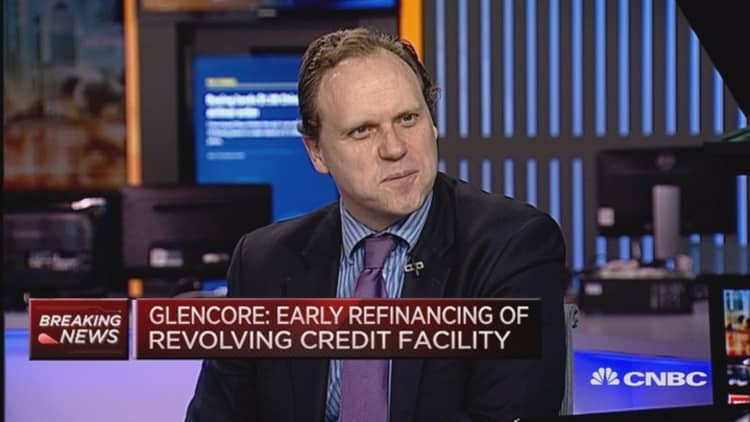Glencore is close to the sale of a large stake in its agriculture business in a deal that would meet a pledge by the miner and trading house to get its balance sheet in better shape amid a sharp downturn in commodity prices.
The anticipated deal, which involves the Canada Pension Plan Investment Board, is central to Glencore's goal of using $4bn to $5bn of asset sales this year to reduce its large debt pile.
The deal would lead to the Canadian pension fund taking a 40 per cent stake in Glencore's agriculture trading unit for about $2.4bn, giving the business an equity value of about $6bn, according to people familiar with the situation. That is lower than some analysts expected and reflects challenging market conditions for agricultural traders.
Plunging commodity prices last year added pressure across the sector and put companies with high debt under particular scrutiny.
Shares in Glencore, one of the world's largest mining groups as well as a trader of resources spanning agriculture, energy and metals, were among the worst performing among leading UK companies in 2015. However, they have risen 60 per cent this year as commodity prices have partially rebounded.

Glencore has already brought net debt down from $30bn in June to $26bn at the end of 2015, using measures that exclude the value of its inventories, and has said it will cut it further to between $17bn and $18bn this year.
The impending sale of the stake in the agriculture unit is one of a string of deals that Glencore is working on to cut debt, which have also led the group to raise $2.5bn in equity and suspend its dividend.
Glencore is also trying to sell two smaller copper mines and infrastructure and logistics assets, including a rail business in Australia. It has already concluded forward sales for part of its precious metals output.
More from The Financial Times:
Wall Street stumbles amid increasing signs of economic strain
Inside the deal: How Anbang's chairman Wu nearly landed Starwood
Why fossil fuel power plants will be left stranded
Ivan Glasenberg, chief executive, has also portrayed the sale of a stake in the agriculture unit as a way of increasing its firepower for possible acquisitions. Glencore expanded its agriculture business significantly by buying Viterra, a Canadian grain dealer, in 2012 in a $6bn deal but has admitted it would like to fill further gaps in the Americas.
Glencore had been targeting a sale of between 30 per cent and 49 per cent, with JPMorgan estimating previously that such a transaction could raise up to $3.9bn.
Underlying operating profits at Glencore's agricultural business almost halved last year to $524m, reflecting weaker prices and lower volatility in products including grains and cotton.
CPPIB and Glencore declined to comment on the planned transaction, which was first reported by the Wall Street Journal.



